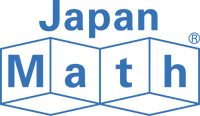
When referring to "knowledge" in the field of mathematics, two types of knowledge are conceivable.
One is knowledge of facts and concepts. This corresponds to literacy in symbols, rules of operation, definitions and theorems concerning numbers and figures. This type of knowledge is easy to verbalize. That is, it is possible to explain the details of the knownledge to other people both orally and in writing.
The other is knowledge of performing procedures. Put another way, it is "Skill" or "Know-how." It includes skills such as calculating quickly and accurately. This type of knowledge is difficult to describe in words, but it allows actions in an orderly manner without thinking.
In order to strengthen conceptual knowledge, verbalization or an activity of explaining knowledge in words is effective. On the other hand, repetitive practice is effective for strengthening procedural knowledge. These two types of knowledge support each other and constitute academic achievement in mathematics.
We constantly ask ourselves if the mathematical teaching materials we are creating are a well-balanced combination of these two types of knowledge and that the teaching materials expand and develop both of them.
